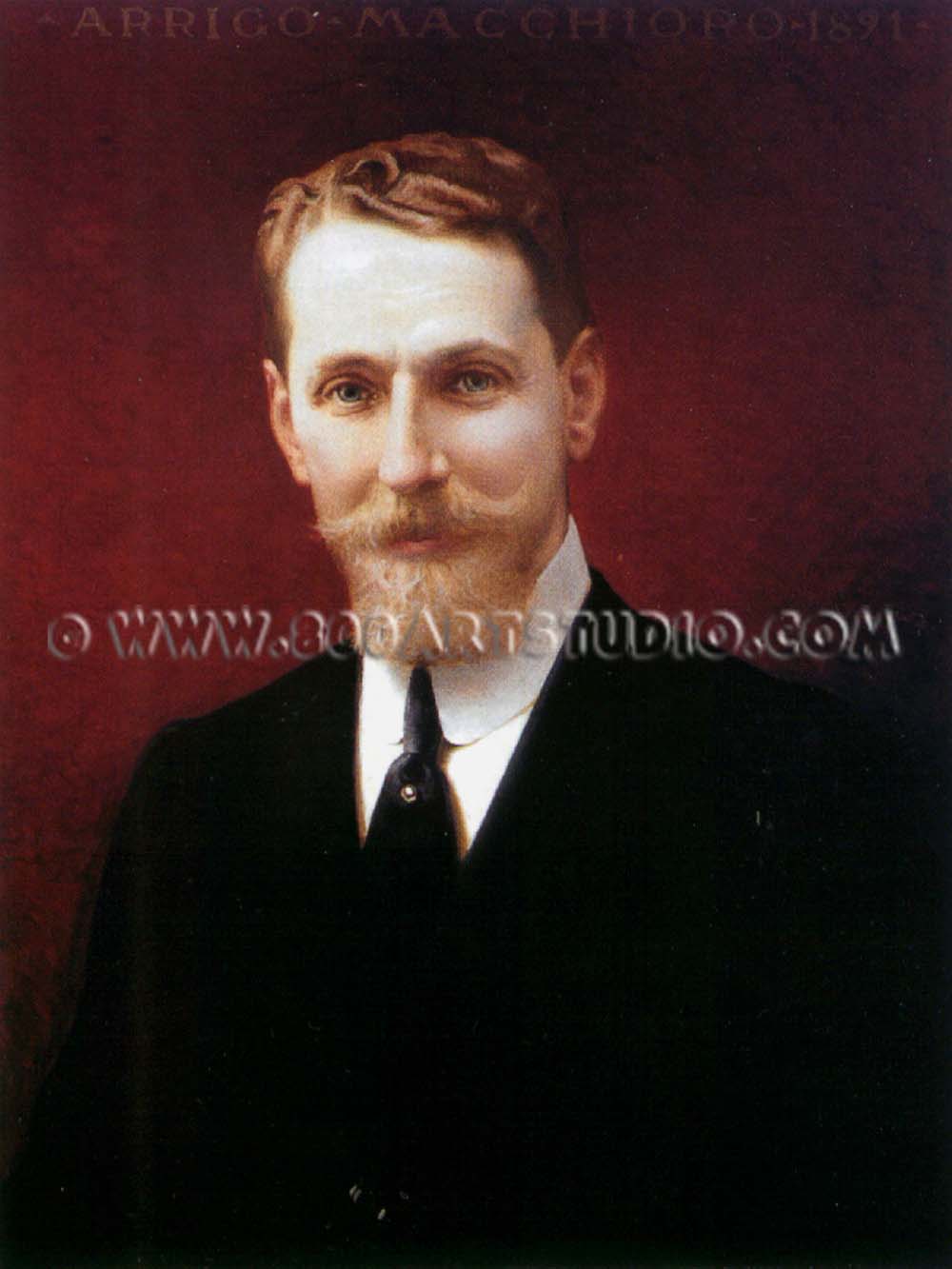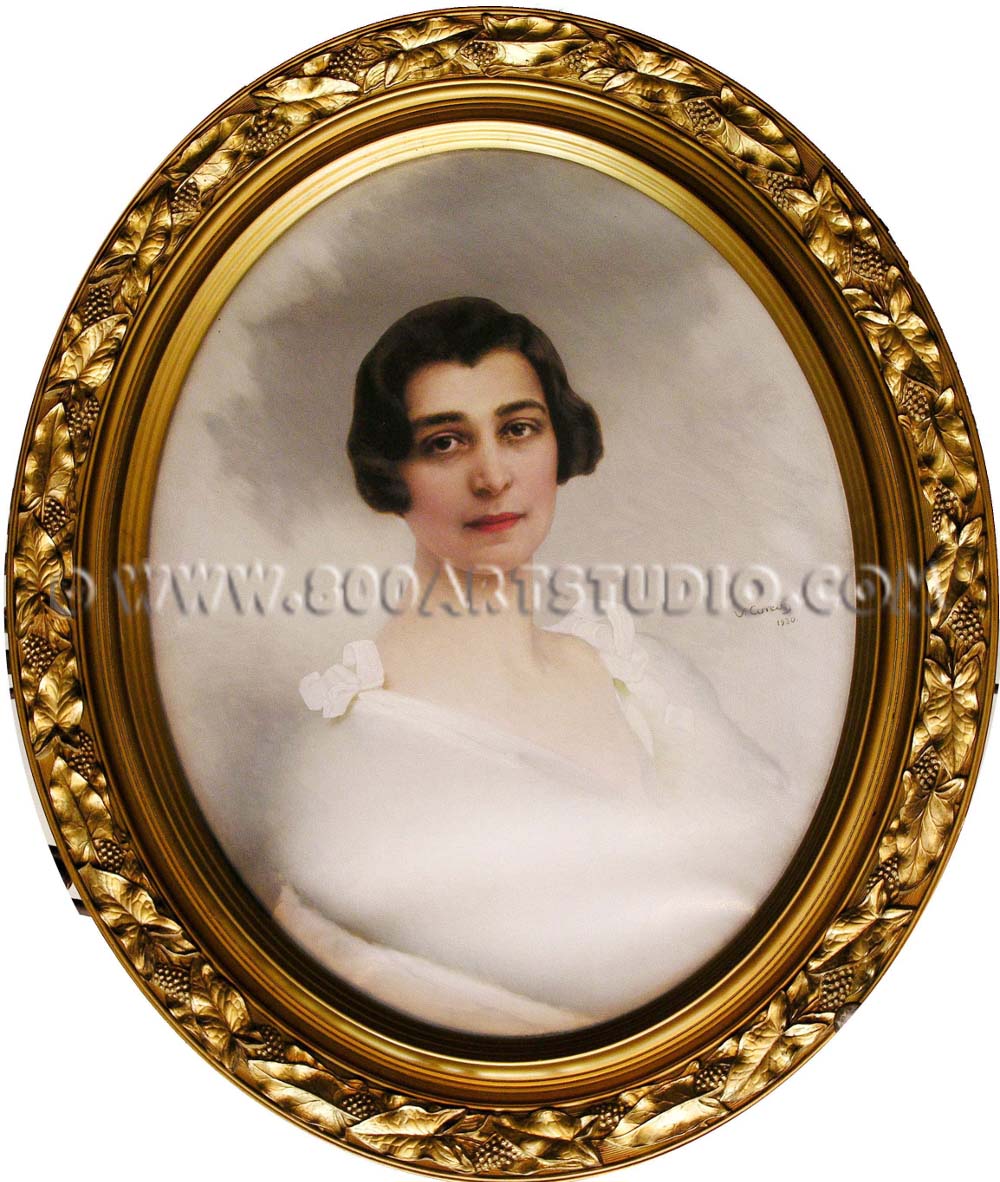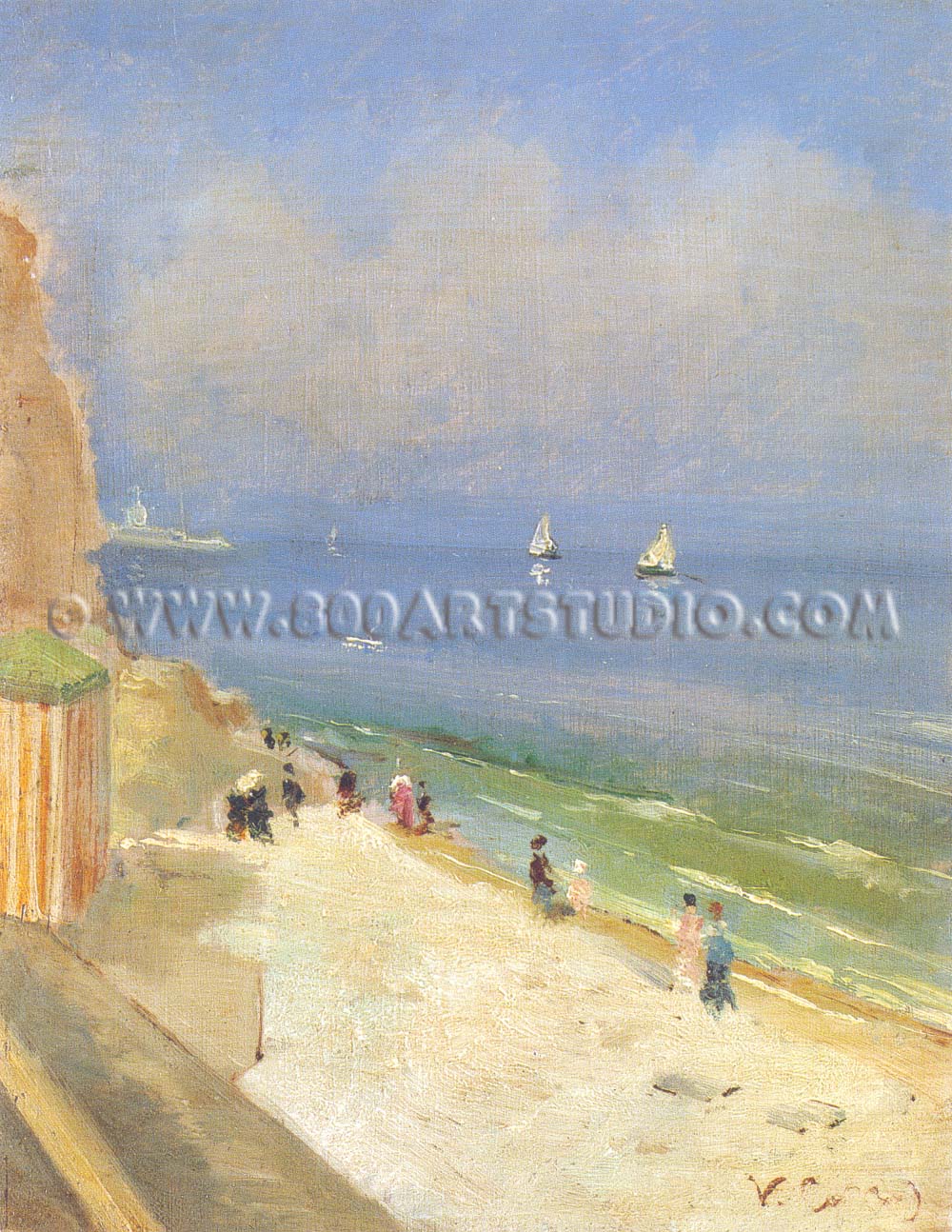Born in Leghorn on 4 October 1859, in the 1870’s Corcos studied at the “Accademia delle Belle Arti di Firenze” under Enrico Pollastrini. Between 1878 and 1879 he was in Naples at Domenico Morelli’s studio whose work, rich in literary associations and formal ideas made a great impression on him. A work that illustrates Morelli’s influence, “Arabo in preghiera” (The Praying Arab), dates from this period.
In 1880 Corcos moved to Paris where he signed a two-week contract with the Goupil Art Gallery. From time to time he went to the studio of Léon Bonnat, portrait painter to the Parisian upper middle class and he successfully became part of elite art circles. For his own paintings he chose fashionable themes: female portraits, scenes of modern life, sophisticated interiors painted in vibrant colours and fluid brushstrokes, works in the style of Boldini and De Nittis. Between 1881 and 1886, the year when he returned to Italy, he frequently exhibited at the Salon.
He settled in Florence and in 1887 married Emma Ciabatti, Rotigliano’s widow, and it was through his marriage that he came into contact with intellectuals such as Carducci and D’Annunzio. His lively, pleasant paintings, especially his portraits, were very well received in Florentine cultural and aristocratic circles which were the source of many of his commissions: “Portrait of the Countess Annina Morosini” (Ritratto della Contessa Annina Morosini”), “Portrait of the Countess Nerina Volpi di Misurata” (Ritratto della contessa Nerina Volpi di Misurata), “Portrait of Carducci, Puccini and Mascagni” (Ritratto di Carducci, Puccini e Mascagni). In 1913 his “Autoritratto” (Self-Portrait) joined the Uffizi collection.
By the turn of the 20th century Corcos had become famous as a portrait painter. In 1904, in Germany, he painted portraits of Wilhelm II, the Empress and many important German figures, a little later he painted the portrait of Queen Amelia and later still, by now at the end of his career, the “Ritratto di Margherita di Savoia” (Portrait of Margherita of Savoy).
Written by: Gioela Massagli – Translated by: Catherine Biggerstaff
© Studio d’Arte dell’800




